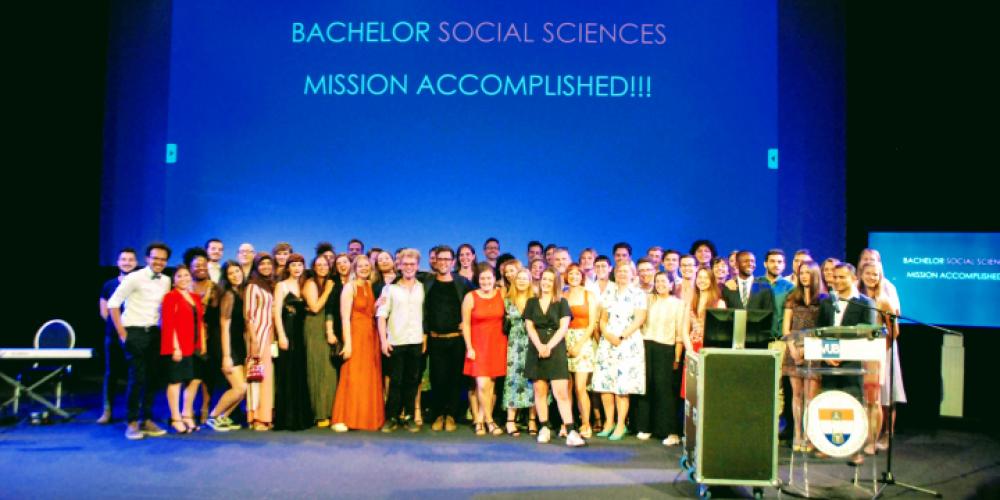
The official graduation is slated to take place in September, but for most international students who finish now this is too late, as they all pack up and head back home. It was therefore important to do something special to mark the occasion and to say goodbye in a more formalised manner and celebrate an achievement.
An achievement not just for those 40-odd students graduating, but also for its programme director, Professor Dieter Vandebroeck. When asked to evaluate this popular programme, and to reflect back on its beginnings, he says: “To try and build an academic bachelor with staff from two universities and seven academic departments is nothing short of madness. The fact that we not only pulled this off but managed to create one of the most innovative and fastest growing social sciences programmes in the country, currently enrolling students from sixty different nationalities, is living proof of the great things that can happen when people reach out across the boundaries of university, faculty, discipline and nationality. As a programme director, I’m immensely proud of this collective achievement.”
The programme’s popularity also lies in its curriculum: three disciplines, building bridges between political science, sociology and communication studies. Students are offered the options to mix and match analytical skills, methodological strengths and combine it with expertise on the European institutions and social issues.
As Ruben Janze Lindberg from Sweden put it: "Being in my last semester of the programme I cannot help feeling extremely grateful for all it has given me. Each semester has introduced a different set of professors and courses that have changed how I view the world. But most importantly, constant throughout the programme, a student body which engages me in how we should change the world.”
Some of the students who are graduating now were a bit emotional. The end of an era. They realise they were guinea pigs of sorts, but it was all for a good cause, and if they could do it again, they certainly would, without hesitation! The students we spoke to all unanimously stated that it was a tough programme, with lots of hard work, but worth it, and they enjoyed every minute. They got the opportunity to pave the way for those following, by discussing the changes they felt were needed with the academic and administrative staff of the programme.
And so the graduates echo Professor Vandebroeck’s words, when they said they too were very proud to be graduating from this unique and impressive programme!